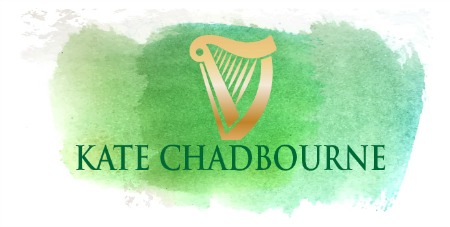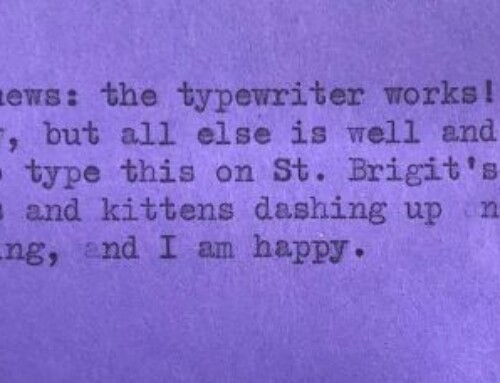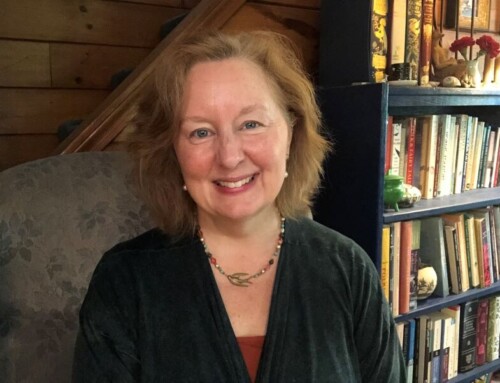Read: it’s your civic duty. I have never before felt this more clearly or more urgently.
All summer I’ve been teaching students about the necessity of reading critically and evaluating sources with greater awareness and discernment.
This is a new idea for many students and I’m aware that it can strike them as elitist and exclusionary. What I try to make clear, though, is that we evaluate sources by examining THEIR sources. So, when looking at fairylore, for example, our best sources are either primary ones (oral tales or accounts in Irish or English) or secondary ones (analysis or ethnography) that rely on primary sources.
We run into trouble – distortion, inaccuracy, bias – when we get too far from primary sources. And truth be told, the primary sources for Irish fairylore are WAY more interesting than the weak tea served on the internet!
Some members of the general public are also running into trouble with sources during this pandemic. Take the Florida sheriff, for instance, who announced yesterday that his deputies are officially prohibited from wearing masks while on the job. Why? Because, he says, “the amount of professionals that give the reason why we should, I can find the same amount of professionals that say why we shouldn’t.”
He is confused by these sources and so he has called the match squarely by the dictates of emotionalism and preference. (Lest we sneer, let’s remember the many times we also short circuit rational thought and do what’s easiest or most expedient; second piece of cake, anyone?).
Here’s the thing: this man does not wish his deputies to become infected, I can guarantee you that. But lacking the ability to evaluate divergent viewpoints he cannot come to a reasoned conclusion – even one that is so clearly in his own best interest. He was not taught to do this and no one helped him feel at home in the realm of language which is itself the SOURCE of ideas.
I believe the most valuable thing we have as thinkers and participants in social, political, and cultural life is a frame of reference – a mental Rolodex of allusions, analogies, context, and memory – that empowers us to formulate an informed perspective on everything from fairies to mask-wearing. Of course, this frame of reference is ever evolving and responsive to new evidence; it’s not a static entity but a living image of an individual mind in this moment.
The best way I know to develop and expand our frame of reference is to read.
Once, we were a nation of readers. We are currently led by a man who tells us proudly that he doesn’t read. He is far from alone. Many people see reading as an activity separate from the rush and requirements of “real life.” But nothing could be further from the truth, and this view results in intellectual impoverishment that if unchecked leads and has led to other forms of impoverishment.
I have been lucky to know people who carried within them extraordinary richness. They are measured and patient, understanding something of history. They are humane and disinclined to mock others, having immersed themselves in human stories. Every one of these people is an avid reader.
To my mind, it’s clear that if we wish to become empowered thinkers capable of making choices that lead to our own flourishing and to the flourishing of those with whom we share the world, we must read.
And teachers, parents, adults, all of us – we must pass this value to our young ones.
Reading cultivates the head (clarity, rationality) AND the heart (compassion, sympathetic imagination). With these excellent, necessary tools, we create lives of freedom, growth, connection, contribution, and great beauty.
We become people who carry treasure and share it for the good of all.



